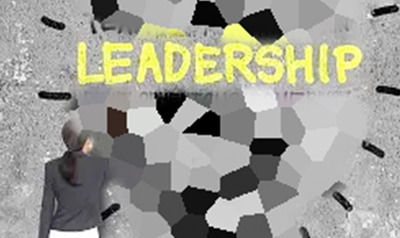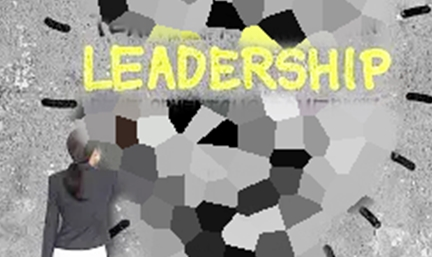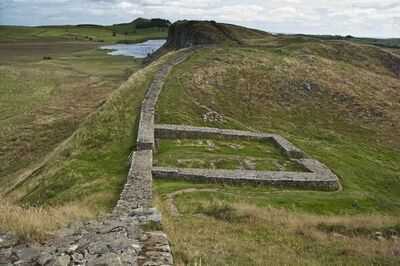

New Delhi, Oct 12 (IANS) Of all the requisites for a leader that have been written about, five stand out as the unmistakable qualities that define the success of leadership in the new era of knowledge to which we belong. Since all business is human activity, a leader’s understanding of human nature and psychology and his or her interest in human interactions, came right on top of the virtues of leadership.
The head of an enterprise cannot be an aloof-looking individual sitting on top of a vertical hierarchy as the responsibilities cast on such a person range from monitoring the output of individual employees to setting the ethical framework for the organisation. Since the performance of the corporate body is now largely the sum total of the work produced by teams handling crucial functions, a successful CEO today had to take responsibility also for constituting the right teams and providing them the right work environment to enable them to put out their best.
The top man should define the parameters of the ‘boss-subordinate’ relationship down the line, lay down the norms of interpersonal behaviour amongst the members and define an objective system for judging the performance of employees that did not allow any confusion about credit-sharing.
The second most important requisite of leadership is his or her resolve to keep oneself well- informed about the goings on within the organisation and about developments of relevance happening outside. There should be no reluctance to face information- a good leader is proactive about seeking information for he or she remembers that ‘ information does not reach you, you have to reach information’.
A chief of the corporate body today knows what new responsibilities have been created for the CIO and the HRD head by AI applications and has the ability to guide these applications. CIOs in particular are now leading the charge in transforming scattered digital tools into connected intelligent work systems. The top leader should be curious to know how the customer outreach could be spread and new service operations created in that particular line of business.
Artificial Intelligence (AI) has made cost-effectiveness an important means of enhancing profitability through an organisational reset of deployment, procedures, and training programmes.
In the Age of Knowledge, competitiveness has touched new heights because even if you were well-informed, the competitors might also have the same knowledge as you have for the reason that information today was shared universally as soon as it was created. What can give you a lead over others is that you have ‘exclusive’ information called Intelligence that gives you an idea of ‘what lies ahead’.
Artificial Intelligence (AI) had the potential of helping to make a futuristic reading based on Data Analytics or ‘Machine Learning’ and produce predictive readings that belonged to you only. AI no doubt is governed by the input-output principle but the business owner can use it in an innovative way for generating gainful knowledge such as ascertaining the ‘modus operandi’ of the rival -the latter was likely to repeat that. Intelligence indicates the ‘opportunities’ or ‘risks’ on the horizon and helps the organisational leadership in deciding how to move forward on a note of advantage.
A leader today has to be not only well-informed but also intelligence-oriented. Knowledge-based decision-making is the hallmark of good leadership and if action is based on intelligence, it would be failsafe in most situations. A leader should not presume that the ability to make decisions comes from personal charisma or inheritance.
The third basic plank of leadership is that the leader should be able to justify the faith reposed in him or her by the followers. This will in turn, depend on the character,image and conduct of the leader. A leader has to be trustworthy, accessible, impartial, large-hearted and transparent in terms of not letting a gap develop between his words and deeds. In a nutshell, the leader must have the ‘power of authenticity’ from which he or she draws strength. A test of this is the authority that the leader’s words commanded, particularly in times of collective adversity or a moment of crisis the organisation, the nation and the world at large faced.
An act of unexplained favouritism, a flaw of morality or the revelation of vested interest could damage the image of a leader irretrievably. The gains of leadership lie in material, mental and spiritual planes and a leader had to show an equanimity towards physical comforts, courage rooted in the strength of ‘nerves’ and commitment to a declared value-system, to enjoy them. A leader must be democratic-sounding but must keep the decision-making power to oneself and should have the communication ability to convince the followers that their interests were safe with him or her. Leadership in any sphere demands clarity of expression and a convincing presentation of his or her point of view. Power of communication is an inseparable part of the aforesaid ‘power of authenticity’.
Another hallmark of leadership is the personal and organisational legacy the leader leaves behind for the successors. This stands out precisely because it does not happen ordinarily. The Indian concept of a leader being ‘paternal and nurtural’ towards those who worked for him helped to promote this legacy.
In the Western value system the boss-subordinate relationship is about giving orders and seeking compliance- it leaves little scope for the exercise of ‘emotional intelligence’ which would allow the boss to have some idea of how the subordinate was doing on the family front and outside the work place generally.
Emotional Quotient (EQ) is a measure of Emotional Intelligence and it enables a leader to be accommodating if the employee could not meet the ‘deadline’ or showed an abnormal response probably because something on the family front was disturbing him. The relationship between a senior and the junior should not become too impersonal and arid.
On the other hand, it is also likely-and this might be part of Western orientation- that the employee may not like the boss to take any interest in the former’s personal life. A judicious leader knows what would work with the individual members of the team. The essence of a ‘nurtural’ style of leadership is in exercising the right to ‘task’ a worker but conveying the impression that the top man was accessible in case a situation arose in the corporate body that needed his or her guidance. Also, a successful leader today is tested not only by his capacity to take decisions but also by his ability to make a ‘course correction’ should that become inevitable.
The final bid for the call of leadership is the leader’s innate mix of power of imagination, freedom from ‘fear of failure’ and belief in the collective wisdom of the people being led. This mix is a variable in itself determining the degree of success a leader would be able to show.
Albert Einstein’s dictum that ‘imagination is more important than knowledge’ refers to the capacity granted only to a human mind- not to the machine -to see beyond the facts or data in front and perceive what lay ahead, not missing the wood for the trees. An Intelligence organisation is a typical example of a collective body in which the individual operators are not deterred by fear of failure because of their confidence that they knew their job and would spare no effort to fulfil it. Not all leaders are able to pass that sense of confidence down the line.
Further, an organisation represents the diversity of its members and its leadership would do well to tap the endowment of wisdom of its members, particularly in a trying situation. Wisdom does not rest on rank, affluence and gender and good business organisations depend as much on an evaluation of external environment as on a sound system of internal feedback relating to various points of strategy under examination.
(The writer is a former Director Intelligence Bureau)
--IANS
dcpathak/rs
-
Victoria Coren Mitchell 'frightened all the time' as she admits 'I'll never be free again'

-
TN mulls proposing Samanatham tank as Ramsar site for wetland conservation

-
People are only just learning why some windows have bizarre circles on them

-
Incredible 84-mile free walk along Roman wall through 2 of UK's most beautiful counties

-
I'm a Strictly star - I was gutted when I found out who gets axed tonight
